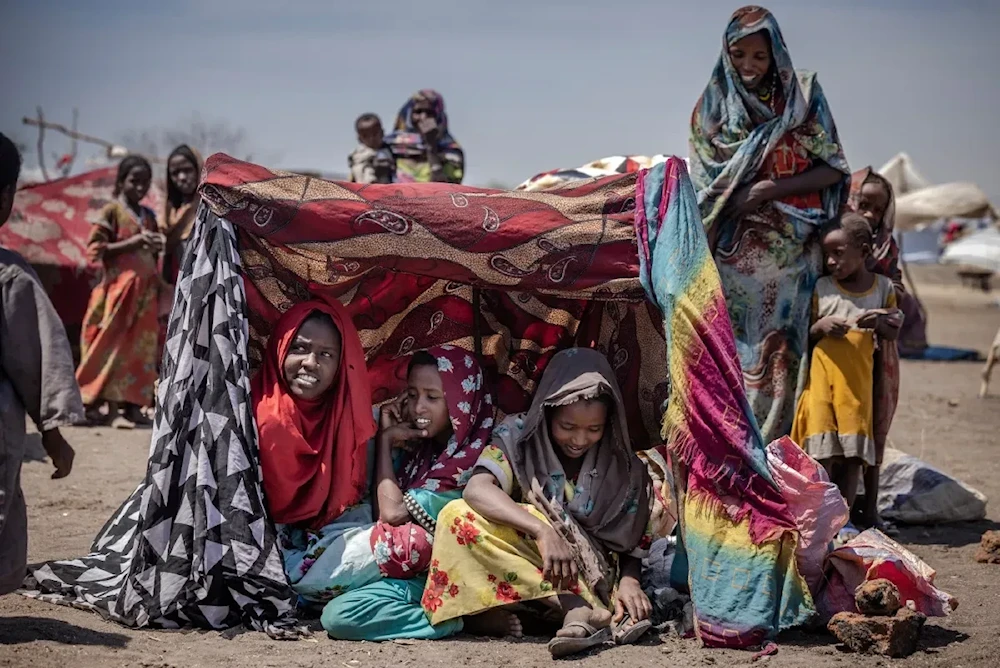UN report exposes abuse, attacks on civilians by Sudan warring parties
The UN human rights office has reported that both parties in Sudan's ongoing conflict have committed actions that could potentially amount to "war crimes".
-

Sudanese girls and women find some shade at a transit center for refugees in Renk, South Sudan. (AFP)
Abuses potentially constituting war crimes, including indiscriminate attacks on civilian locations, such as hospitals, markets, and displaced camps, have been committed by both sides in Sudan's ongoing conflict, as per the United Nations human rights office.
Despite ongoing efforts, the 10-month conflict between Sudan's regular armed forces and the paramilitary Rapid Support Forces (RSF) persists, resulting in thousands of casualties and over six million people displaced, making Sudan home to the world's largest displaced population.
"Some of these violations would amount to war crimes," Volker Turk, the UN High Commissioner for Human Rights, said in a statement accompanying the report. "The guns must be silenced, and civilians must be protected."
Dive deeper
The United Nations report, spanning from April to December, relied on interviews with more than 300 victims and witnesses, alongside footage and satellite imagery.
In further detail, the report highlighted instances, where individuals escaping violence or displaced by conflict, became casualties of explosive weapons attacks. In a specific incident in Zalingei, Darfur, between September 14-17, the RSF shelled a camp, resulting in the killing of numerous displaced individuals.
On August 22, under a bridge, 26 civilians, predominantly women and children, were killed by shells reportedly launched by the Sudanese Armed Forces. Additionally, the report noted the adoption of a military strategy by the RSF, involving the use of human shields, as testified by victims.
The report detailed incidents in the capital, Khartoum, where numerous individuals were apprehended and positioned outside near RSF military posts as a deterrent against air strikes from Sudanese fighter jets.
UN investigators have also recorded instances of sexual violence impacting 118 individuals, including a woman who was detained and subjected to repeated gang rape for several weeks, with many of the assaults attributed to RSF members.
It is worth noting that the conflict in Sudan ignited in April, stemming from disputes over power between the army and RSF as outlined in an internationally-supported plan for a political transition toward civilian rule and free elections.
Read next: Sudan: A borderless conflict

 2 Min Read
2 Min Read








